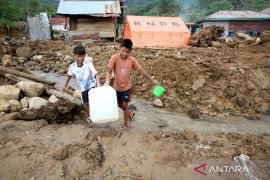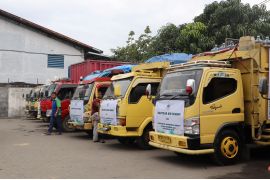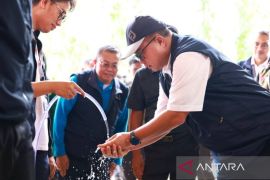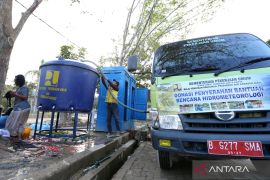Composting toilet technology that BRIN proposes can be an interesting solution to handle clean water crisis that not only occurs in North Jakarta, but also in other regionsJakarta (ANTARA) - Environmental technology researcher at the National Research and Innovation Agency (BRIN) Neni Sintawardani, in a written statement on Monday, offered as an alternative solution in the form of composting toilet amid the clean water crisis.
"Composting toilet technology that BRIN proposes can be an interesting solution to handle the clean water crisis that not only occurs in North Jakarta but also in other regions," she noted.
Composting toilet does not require the use of a large amount of water. If a conventional toilet requires around 40 liters per day for cleaning purposes, then a composting toilet only requires five liters of water per day.
Composting toilet can process human waste into fertilizer, and it is designed as a seated toilet, so that its disposal direction and cleanliness can be maintained.
The system within the toilet also allows urine to be separated from feces.
"On one hand, technologically, this is very promising, the environmental handling of waste, and it can reduce clean water utilization," Sintawardani remarked.
North Jakarta is reeling from the impacts of a clean water crisis that necessitates prompt and sustainable handling, she highlighted. Hence, the use of composting toilet can be an alternative solution.
The government has, in fact, executed water provision programs, such as through the government-run Regional Drinking Water Company (PDAM) or selected tap water companies' piping service, she stated.
However, the clean water crisis impacting North Jakarta, such as Penjaringan, necessitates breakthroughs, as it has prolonged for quite some time.
Related news: Kupang district government provides sanitary toilets in villages
According to the study conducted by Sintawardani in Kiaracondong, Bandung, West Java, the average water requirement only for defecation and urination reached 40 percent apart from that required for drinking.
"If not managed well, the water crisis will become a global problem," she cautioned.
According to the Asia and the Pacific SDG Progress Report, Asia has the most globally significant concentration of water-related disaster risks.
These include water scarcity and inadequate access to clean water service and safe sanitation.
Related news: Toilets in tourist destinations must meet national standard: Uno
Translator: Martha S, Fadhli Ruhman
Editor: Rahmad Nasution
Copyright © ANTARA 2022












